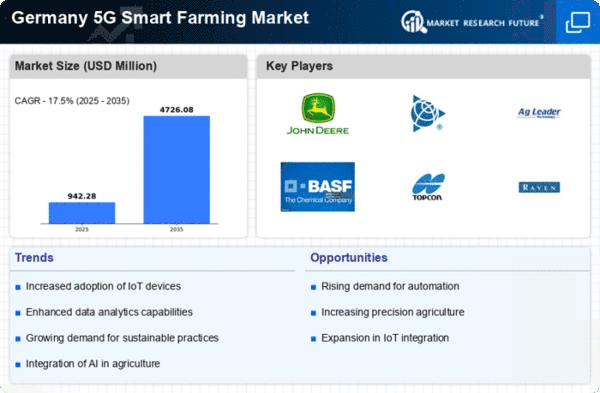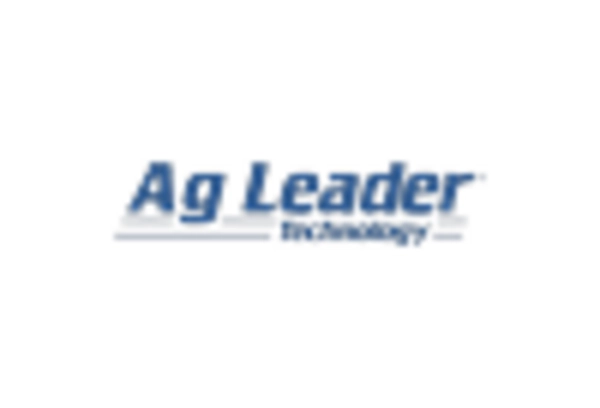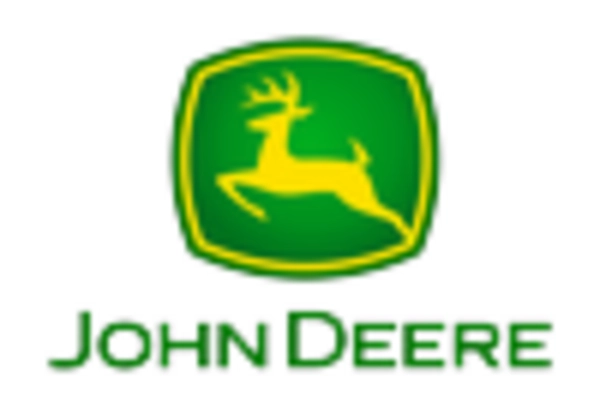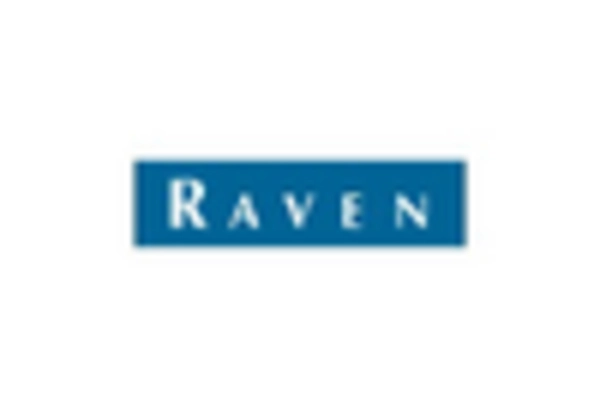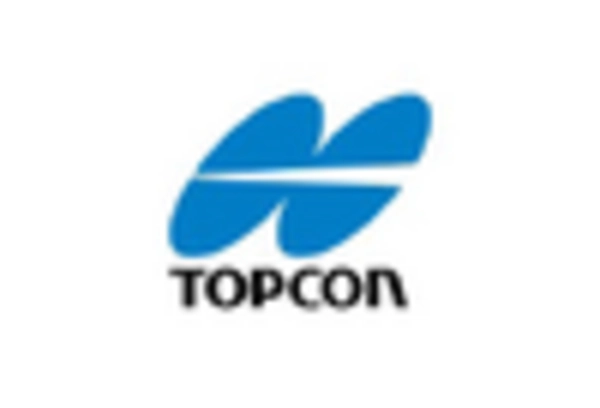Rising Demand for Food Security
The 5g smart-farming market is significantly driven by the increasing demand for food security in Germany. With the population projected to reach approximately 84 million by 2030, the pressure on agricultural systems to produce sufficient food is intensifying. The integration of 5g technology in farming practices is seen as a viable solution to enhance productivity and sustainability. By utilizing advanced data analytics and real-time monitoring, farmers can optimize their operations, potentially increasing crop production by 15-25%. This demand for food security is not only a matter of quantity but also quality, as consumers are becoming more health-conscious. Consequently, the 5g smart-farming market is positioned to play a pivotal role in addressing these challenges, ensuring that agricultural practices can meet the evolving needs of the population.
Climate Change Adaptation Strategies
The 5g smart-farming market is increasingly influenced by the need for climate change adaptation strategies. In Germany, farmers are facing challenges such as unpredictable weather patterns and extreme climate events, which threaten crop yields. The implementation of 5g technology enables farmers to access real-time climate data and predictive analytics, allowing them to make informed decisions regarding planting and harvesting. This capability is crucial in mitigating the adverse effects of climate change, as it can lead to more resilient agricultural practices. Studies suggest that the adoption of smart farming techniques could reduce crop losses by up to 30% in adverse weather conditions. Thus, the integration of 5g technology is not only a response to current challenges but also a proactive measure to ensure the sustainability of agricultural production in the face of climate change.
Investment in Agricultural Technology
Investment in agricultural technology is a key driver for the 5g smart-farming market. In Germany, public and private sectors are increasingly channeling funds into research and development of smart farming solutions. Reports indicate that investments in agri-tech could reach €1 billion by 2027, reflecting a growing recognition of the importance of technology in enhancing agricultural productivity. This influx of capital is likely to accelerate the development of innovative solutions that leverage 5g connectivity, such as drone technology for crop monitoring and automated irrigation systems. As these technologies become more accessible, farmers are expected to adopt them at a faster rate, thereby driving the growth of the 5g smart-farming market. The potential for improved efficiency and reduced operational costs makes this investment particularly attractive.
Technological Advancements in Agriculture
The 5g smart-farming market is experiencing a surge due to rapid technological advancements in agricultural practices. Innovations such as precision farming, automated machinery, and IoT devices are becoming increasingly integrated into farming operations. In Germany, the adoption of these technologies is projected to enhance crop yields by up to 20% over the next few years. This integration allows farmers to monitor soil conditions, weather patterns, and crop health in real-time, leading to more informed decision-making. As a result, the efficiency of resource utilization improves, which is crucial in a country where agricultural land is limited. The ongoing development of 5g networks further supports these advancements, enabling faster data transmission and connectivity, which are essential for the effective functioning of smart farming solutions.
Consumer Preference for Sustainable Practices
The 5g smart-farming market is also driven by changing consumer preferences towards sustainable agricultural practices. In Germany, there is a growing awareness among consumers regarding the environmental impact of food production. As a result, there is an increasing demand for products that are produced using sustainable methods. The integration of 5g technology in farming allows for more efficient resource management, reducing waste and minimizing the carbon footprint of agricultural operations. Reports indicate that consumers are willing to pay up to 10% more for sustainably produced food. This shift in consumer behavior is prompting farmers to adopt smart farming techniques that align with these preferences, thereby driving the growth of the 5g smart-farming market. The alignment of agricultural practices with consumer values is likely to enhance market competitiveness.


